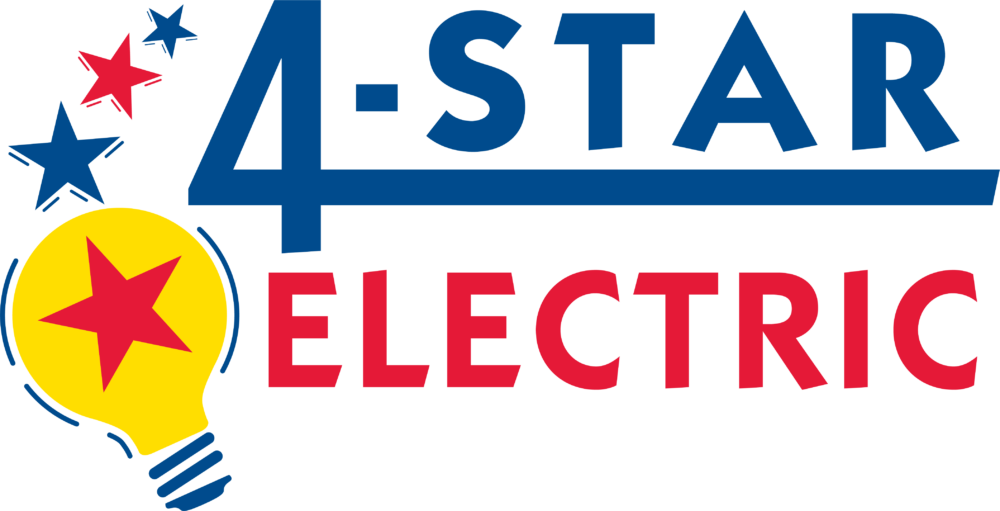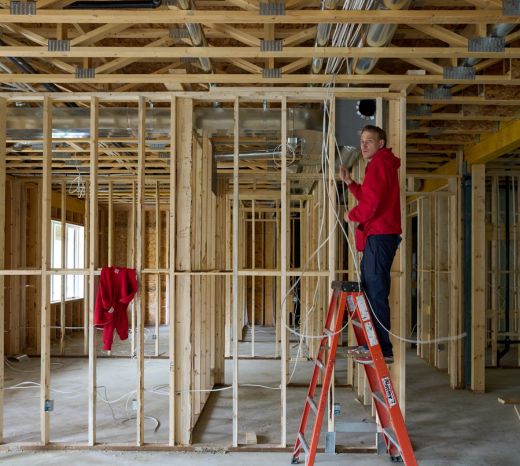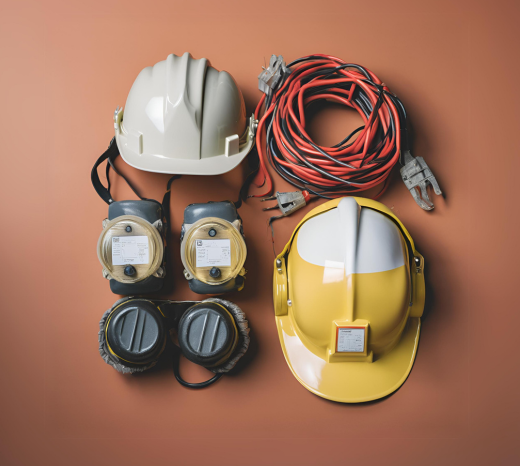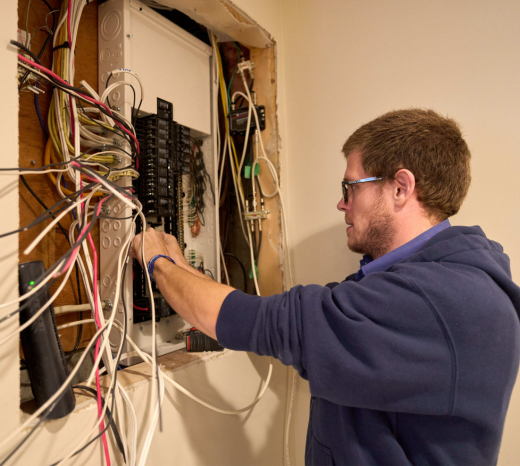Poor wiring is not a matter to take lightly. It can damage electronics, cause electrocution, and incite an electrical fire. According to Statistics Canada, thousands of fires occur every year due to electrical failure or installation deficiency.
These hazards can be fatal, but fortunately they can also be prevented. It takes time or poor installation for an electrical system to fail. While you may not always be aware of these unseen issues, there are five signs that all is not well within your walls.

Your Circuit Breaker Keeps Tripping
Circuit breakers shouldn’t be tripping at all. If they are, it is a sign that something in your environment has changed and there is an issue that needs to be looked at. It may be that the circuits are overloaded, or there are problems with the connections or wiring. Our electricians can analyze the issue and offer you a diagnosis, as well as a solution.

House Lights Are Flickering
Being in your home shouldn’t feel like an episode of The Haunting of Hill House. If the lights are flickering, dimming, or buzzing, you need to pay attention. The good news is that you don’t need an exorcist to fix those bulbs, you simply need an electrician.

Scorch Marks On Your Outlets
Have your eggshell-white outlet coverings started turning brown? This could be a sign that something is amiss. Browning outlets may just be a sign of age, but they could also be scorch marks that suggest either bad wiring or more issues with the connections. Either way, you should address the issue as soon as possible.

You Smell Burning
Often accompanied by scorch marks, burning or otherwise unusual smells are an indicator that a connection is causing damage within your walls. Trust your nose and call the professionals to come in and check it out.
If you are experiencing any of these warning signs, contact a certified electrician immediately. We can perform an electrical inspection that can verify what the issue is, as well as the best way to deal with it. The experts at 4-Star Electric are waiting to serve you!
FAQ About Residential Wiring
What are the different types of wiring found in Alberta homes?
During the 70’s aluminum wire became a popular choice, but special considerations need to be made in its use nowadays.Copper is the most common and has quickly replaced aluminum wiring in most residential and commercial applications. Below is a quick comparison table highlighting the key differences between them.
| FEATURE | ALUMINUM | COPPER |
| Conductivity | Good | Excellent |
| Cost | Cheaper | More expensive |
| Weight | Lighter option | Heavier option |
| Durability | Prone to corrosion, less durable | Corrosion-resistant |
| Flexibility | More flexible, but brittle | Less flexible, more durable |
| Use | Can be used in larger gauged operations | Preferred wiring |
| Installation | Specific handling and connectors | Universal |
| Thermal Expansion | Higher, which can lead to loose connections | Lower, more stable |
Again, keep in mind that while aluminum wiring is still used in some applications, particularly in power grids, its use in residential buildings has decreased due to safety concerns, as stated above. Copper remains the preferred choice for household wiring due to its higher conductivity, safety, and durability.
When should my wiring be replaced?
Even if you’re not yet experiencing the issues listed above, a good rule of thumb is to ensure your home’s wiring is inspected. If your wiring is from before 1950’s it might be time to have the ungrounded wiring replaced.
Can I do my own electrical wiring?
DIY wiring is never recommended. Electrical wiring is only safe when properly installed and maintained. This includes using the correct connectors, ensuring that connections are tight and secure, and regularly inspecting the wiring for signs of wear, overheating, or corrosion. That’s why you can trust our experienced team.
How much does rewiring my house cost?
The cost of rewiring an entire home is based on the total length of wire being replaced and the number of outlets in your home. Contact us today for your comprehensive quote.




